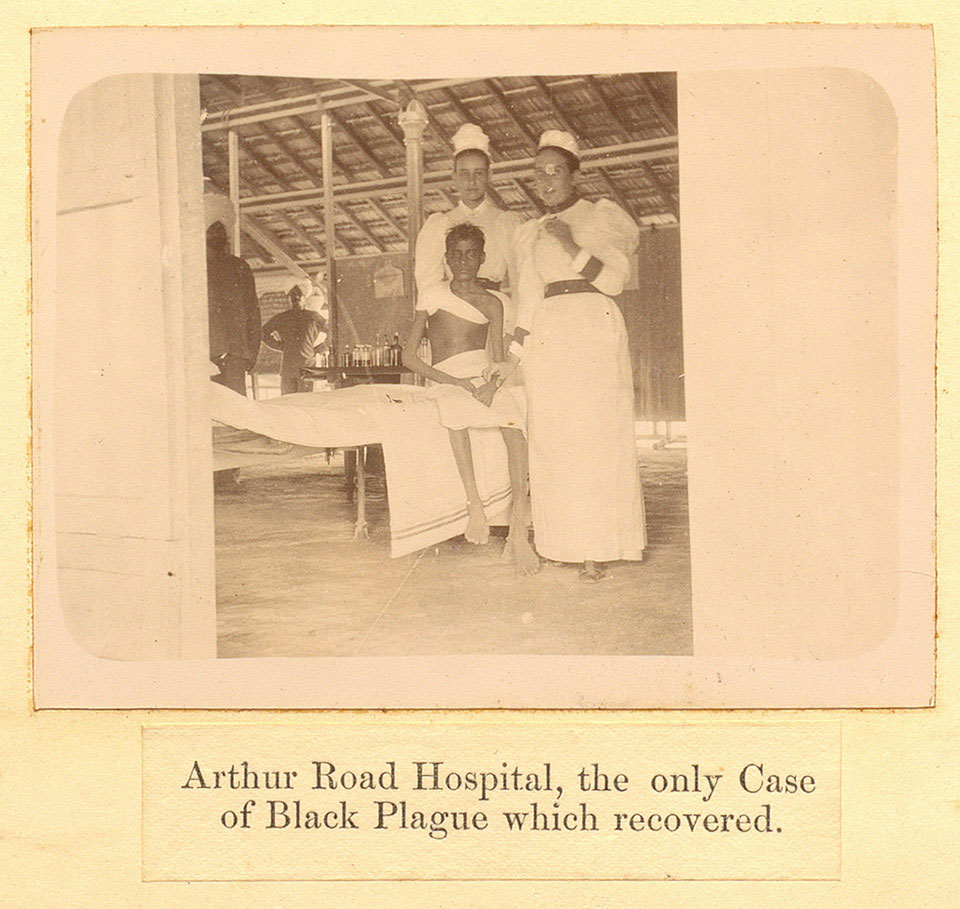
Online Collection
« Prev - 1 of 1 results - Next »
'Arthur Road Hospital, Bombay, the only case of Black Plague which recovered', 1897
Photograph attributed to Captain C Moss, 1897.
Bubonic Plague broke out in Bombay (now Mumbai) in 1896 and spread to many parts of India in the years the followed. The Plague was a terrible disease that was transmitted by rats and fleas. Its symptoms included high fever and glandular swellings, called buboes, most commonly in the groin and armpits. Only a small percentage of victims survived. By the time it began to abate in the early 1920s, the Plague had caused the death of around 12 million Indians.
From an album of 135 photographs entitled 'Plague Visitation Bombay 1896-97'. The majority of the photographs were taken by Captain C Moss, The Gloucestershire Regiment, and the album was compiled by Mr F B Stewart for the Bombay Plague Committee, chaired by Brig Gen William Forbes Gatacre.
NAM Accession Number
NAM. 1992-08-74-15
Copyright/Ownership
National Army Museum, Out of Copyright
Location
National Army Museum, Study collection
Object URL
https://collection.nam.ac.uk/detail.php?acc=1992-08-74-15

